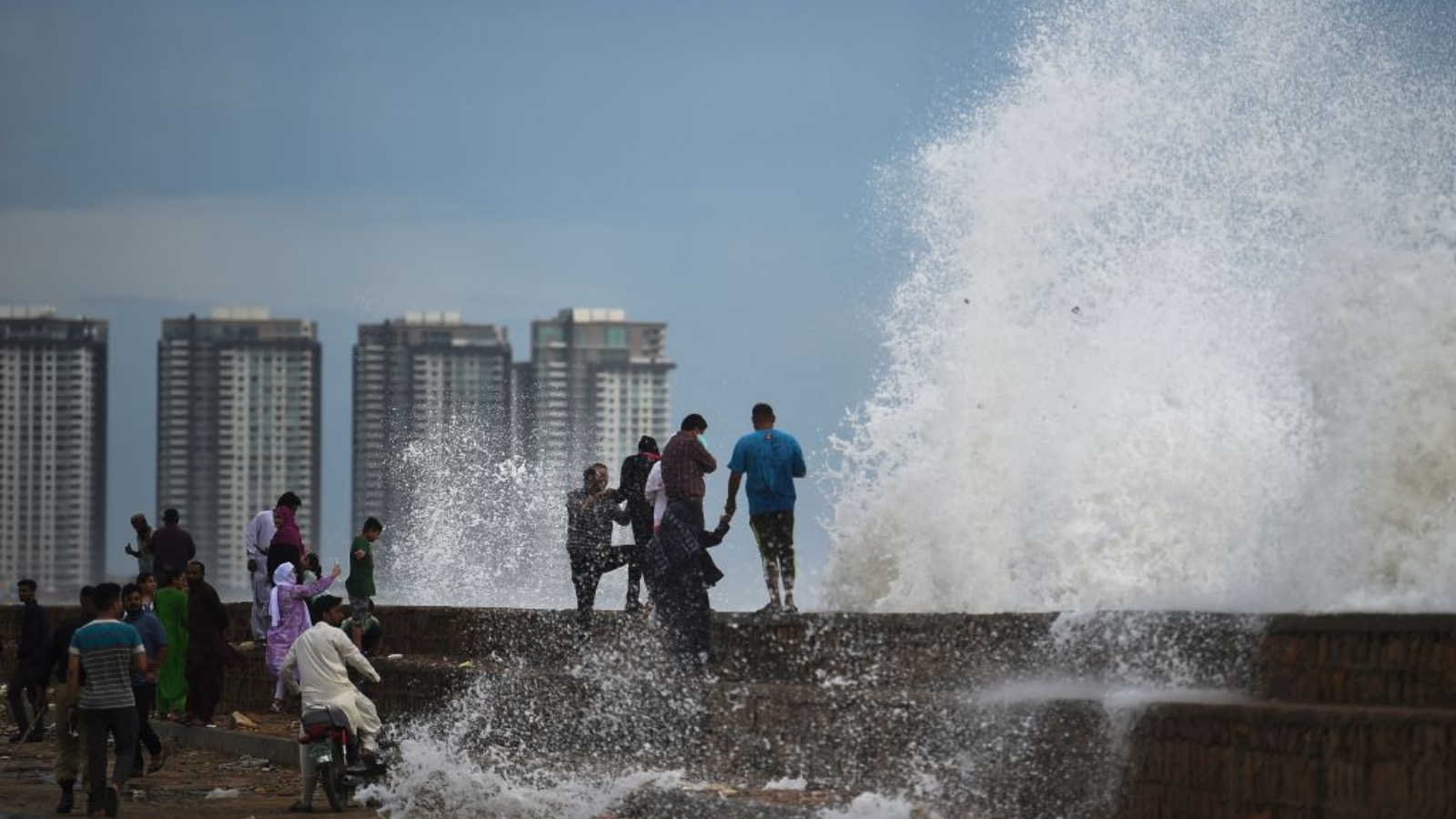India and Pakistan remain on high alert this week as a powerful cyclone churns across the Arabian Sea toward their coastlines. Authorities in both countries have spent the week evacuating more than 80,000 people ahead of the storm’s expected landfall on Thursday.
Meteorologists expect cyclone Biparjoy to strike the southeastern coast of Pakistan and the western Indian state of Gujarat with wind speeds of around 111 mph, making it the most powerful storm to hit the region in years.
“God willing, we will be able to overcome this situation with the support of the people,” said Pakistan’s prime minister, Shehbaz Sharif, said Tuesday in a tweet.
Storms in this part of the world can be particularly devastating. A combination of densely populated, low-lying coastlines, powerful storm surges, and easily flooded river systems make communities in India, Pakistan, and Bangladesh highly vulnerable to extreme weather. Climate change is exacerbating these conditions, raising temperatures in the Indian Ocean and Arabian Sea and fueling fiercer and more frequent storms.
Pakistan is still recovering from a flood that submerged a third of the country last September, killing nearly 1,700 people and displacing 8 million others. At the U.N. climate conference in November, the country’s climate change minister described the devastation and pressed wealthy nations establish a fund for “loss and damages” — the financial losses borne by nations that are suffering the impacts of climate change but bear little responsibility for causing it (Pakistan has contributed to less than 1 percent of global greenhouse gas emissions).
“Loss and damage is not charity, it’s about climate justice,” Nabeel Munir, a Pakistani diplomat and negotiator, said during the summit in Egypt.
The agreement to set up such a fund is remembered as the most important achievement of the conference, but some critics have called the move largely symbolic because it does not guarantee adequate financing to low-income nations experiencing severe climate impacts. In January, Pakistan held a meeting in Geneva to raise money for its flood recovery efforts. A group of donors that included the World Bank, the European Union, and the Islamic Development Bank pledged a total of $9 billion.
Pakistani officials said they will use the money to implement the Resilient Recovery, Rehabilitation, and Reconstruction Framework, an ambitious climate resilience and adaptation plan that includes measures such as building resilient public infrastructure and distributing cash to low-income families still recovering from the flooding.
In an interview with the Thomas Reuters Foundation, Ahmad Rafay Alam, a Pakistani environmental lawyer, praised the plan but cautioned that it will only work with the cooperation of local officials. He also noted that the $9 billion pledged in Geneva falls woefully short of the $30 billion in estimated damages, a fact made all the more challenging by the ongoing economic crisis that has sent inflation soaring in the past year.
The storm expected to make landfall on Thursday risks exacerbating these conditions. Evacuations ahead of Cyclone Tauktae in the spring of 2021 prevented a catastrophic loss of life, but caused more than $2 billion in destruction. A comparable storm could put the country even further behind its climate resilience goals, and make the need for a loss and damages fund that much more acute.


